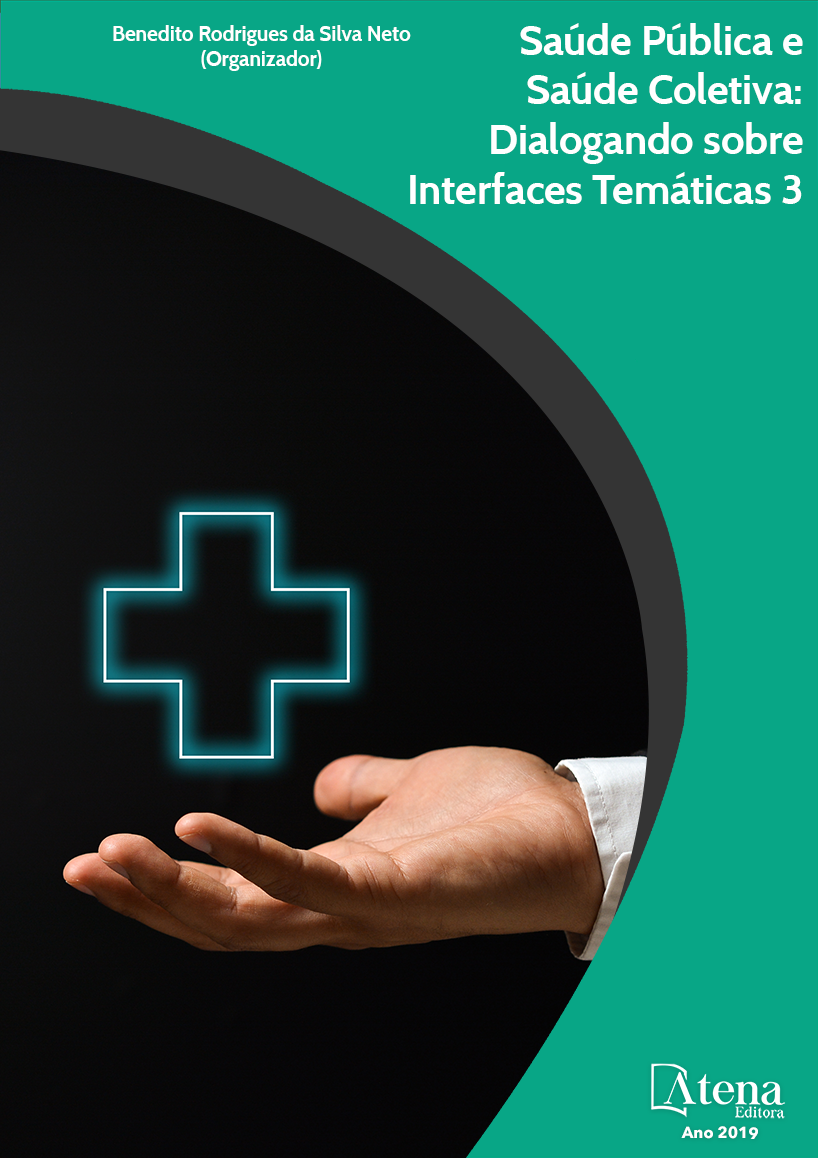
CUIDADOS DE ENFERMAGEM AO IDOSO COM DOENÇA DE ALZHEIMER: REVISÃO DE LITERATURA
INTRODUÇÃO: Também conhecida
por “esclerose” e “caduquice”, a doença ou mal
de Alzheimer é uma enfermidade incurável,
de caráter neurodegenerativo, agravando-se
ao longo do tempo, contudo há tratamento. A
maioria de seus pacientes são pessoas idosas.
A doença tem início com demência (principal
causa) ou perda das funções cognitivas
(memória, orientação, atenção e linguagem),
devido à morte das células cerebrais, o que faz
reduzir a capacidade de realizar trabalho, ter
relações sociais, interferindo no comportamento
e na personalidade. A doença afeta 1% dos
idosos entre os 65 e 70 anos, mas a prevalência
aumenta exponencialmente com a idade, sendo
de 6% aos 70 anos, 30% aos 80 anos e mais de
60% depois dos 90 anos. OBJETIVOS: Realizar
um levantamento dos estudos referentes
aoscuidados de enfermagem ao idoso com
doença de Alzheimer. MÉTODOS: Trata-se de uma revisão de literatura elaborada
no mês de maio de 2018. A busca foi realizada utilizando os descritores: cuidados,
enfermagem, demência e Alzheimer, usados isolados e em combinação com operador
boleano and. Os dados foram coletados nas bases de dados SCIELO e BDENF. Foram
incluídos artigos nacionais e internacionais que abordassem a temática, publicados
no período de 2010 a 2018, e excluídos as dissertações, teses, artigos repetidos e
anteriores ao ano de 2010. RESULTADOS: Foram encontrados 25 artigos, entretanto,
após aplicar-se os critérios de inclusão e exclusão, selecionou-se apenas 8 artigos,
sendo 4 artigos de 2011, 1 artigo de 2013, e 3 artigos de 2016. Observou-se que o
enfermeiro tem o papel fundamental na orientação e cuidados de enfermagem ao
paciente e sua família, desde o diagnóstico ao estágio mais grave. Orientando a
adaptação dos cuidados a progressiva dependência do idoso; a instrumentalização do
familiar para o cuidado; e estimulando o autocuidado e a preservação da autoestima no
binômio idoso-família. Portanto se impõe a necessidade de cuidados de enfermagem
sistematizados, dando prioridade a aqueles relacionados às atividades de vida
diária e à prevenção de incapacidades e complicações, juntamente com a educação
dos familiares. Logo, é importante possuir conhecimentos, habilidades, técnicas e
humanização para o manejodos casos. CONCLUSÃO: Portanto, planejar, executar,
monitorar e avaliar planos de cuidados com idosos demenciados requer criatividade e
paciência. A enfermagem deve encorajar a família a envolver-se ao máximo, entender
e segui-lo com dedicação. Desta forma, falhas são melhor identificadas, promovendo
a revisão e modificação constante do plano de cuidados, uma vez que com a evolução
da doença a dependência torna-se cada vez maior e as demandas mudam. São vários
os tipos e as causas da demência, por isso é importante o diagnóstico precoce para
escolher o melhor tratamento.
CUIDADOS DE ENFERMAGEM AO IDOSO COM DOENÇA DE ALZHEIMER: REVISÃO DE LITERATURA
-
DOI: 10.22533/at.ed.9071902097
-
Palavras-chave: Cuidados, Enfermagem, Demência, Alzheimer
-
Keywords: Nursing, Nursing, Dementia, Alzheimer’s
-
Abstract:
INTRODUCTION: Also known as “sclerosis” and “aging”, the disease or
Alzheimer’s disease is an incurable disease, neurodegenerative, worsening over time,
but there is treatment. Most of his patients are elderly people. The disease begins with
dementia (major cause) or loss of cognitive functions (memory, orientation, attention
and language), due to the death of brain cells, which reduces the ability to perform
work, have social relations, interfere with behavior and in personality. The disease
affects 1% of the elderly between 65 and 70 years, but the prevalence increases
exponentially with age, being 6% at 70 years, 30% at 80 years and more than 60% after
90 years. OBJECTIVES: To perform a survey of nursing care studies for the elderly
with Alzheimer’s disease. METHODS: This is a literature review prepared in May,
2018. The search was performed using the descriptors: nursing, nursing, dementia
and Alzheimer’s, used alone and in combination with Boolean and. The data were
collected in the databases SCIELO and BDENF. National and international articles
dealing with the topic, published between 2010 and 2018, were included, excluding
dissertations, theses, articles repeated and prior to the year 2010.RESULTS: Twentyfive
articles were found, however, after applying the inclusion and exclusion criteria,
only 8 articles were selected, being 4 articles from 2011, 1 articles from 2013, and
3 articles from 2016. It was observed that the nurse has the fundamental role in the
orientation and nursing care to the patient and his / her family, from the diagnosis to the
most severe stage. Orienting the adaptation of care to the progressive dependence of
the elderly; the instrumentalization of the relative for the care; and stimulating self-care
and preservation of self-esteem in the elderly-family binomial. Therefore, the need for
systematized nursing care is given, giving priority to those related to activities of daily
living and the prevention of disabilities and complications, along with the education
of family members. Therefore, it is important to have knowledge, skills, techniques
and humanization to handle cases. CONCLUSION: Therefore, planning, executing,
monitoring, and evaluating care plans for elderly people with dementia requires creativity
and patience. Nursing should encourage the family to be fully involved, to understand
and to follow it with dedication. In this way, failures are better identified, promoting
the revision and constant modification of the care plan, since with the evolution of the
disease the dependence becomes more and more and the demands change. There
are several types and causes of dementia, so early diagnosis is important to choose
the best treatment.
-
Número de páginas: 15
- Marina Ribeiro da Fonseca
- Artelane Nascimento da Cruz
- Keciane Barbosa Soares
- Fabiana Herica Castro Piedade
- Juliana Pereira de Sousa
- Eysland Lana Felix de Albuquerque
- Assuscena Costa Nôleto
- Verônica Shirley Torres Leite
- Laiana Dias Prudêncio
- Bianca Ribeiro da Mata
- Évelyn Oliveira da Costa Leal
- Leia Simone Agostinho de Sousa


